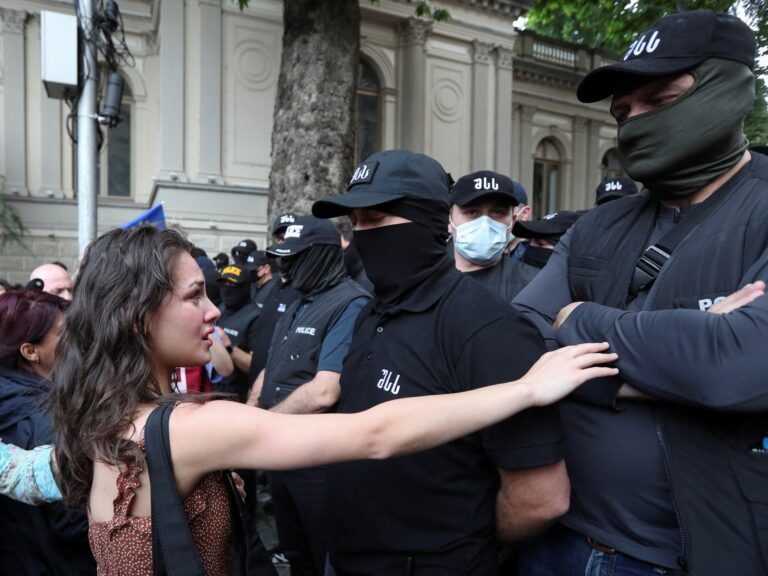Critics say the bill will restrict media freedom and hamper Georgia’s chances of joining the European Union.
The Georgian parliament overturned the presidential veto of legislation on “foreign agents” it fueled Western concerns and sparked weeks of street protests.
Parliament, controlled by the ruling Georgian Dream party, impeached President Salomé on Tuesday. Zourabichvili’s veto legislation that she and other critics say would restrict media freedom and hamper Georgia’s chances of joining the European Union.
The president now has five days to approve the bill. If she does not do so, the President of Parliament will be able to sign it.
The bill approved by Parliament earlier this month requires media outlets, non-governmental organizations and other nonprofit groups to register as “pursuing the interests of a foreign power” if they receive more than 20 per 100% of their funding from abroad.
Zourabichvili, increasingly at odds with the ruling party, vetoed the bill on May 18. She accused the ruling party of endangering the country’s future and “hindering the path to full membership in the free and democratic world.”
The veto was rejected by 84 votes to 4 during a contentious parliamentary session, during which a Georgian Dream lawmaker splashed water on the leader of an opposition party as he spoke from the podium.
The government says the bill is needed to stem what it sees as harmful foreign actors trying to destabilize the South Caucasus country of 3.7 million people, but many Georgian journalists and activists say that the real goal of the bill is to stigmatize them and restrict debate along the way. -until the legislative elections scheduled for October.
Opponents denounce the legislation as “Russian law” because it resembles measures imposed by the Kremlin to suppress independent news media, nonprofits and activists. Critics said the move may have been motivated by Moscow to thwart Georgia’s chances of further integration with the West.
The bill is almost identical to one the ruling party was forced to withdraw last year after street protests. New protests once again gripped Georgia as the bill was passed by parliament. Protesters clashed with police, who used tear gas and water cannons to disperse them.
The EU, which granted Georgia candidate status in December, has repeatedly said the bill would pose an obstacle to Tbilisi’s further integration into the bloc. The European bloc stressed at the time that Tbilisi must implement key policy recommendations for its membership bid to progress.
Last week, US Secretary of State Antony Blinken announced that travel sanctions would be imposed on Georgian officials “who are responsible for or complicit in undermining democracy in Georgia.” He noted that “we still hope that Georgian leaders will reconsider the bill and take steps to move forward with their country’s democratic and Euro-Atlantic aspirations.”
The opposition United National Movement described the bill as part of efforts by Georgian Dream to drag the country into Russia’s sphere of influence – saying it vehemently denied that Georgian Dream was founded by Bidzina Ivanishvili, a former Prime Minister and billionaire who made his fortune in 2007. Russia.
Anti-bill protests have been taking place for weeks, peaking in the evening when crowds of tens of thousands staged some of the largest protests seen in Georgia since it regained independence from Moscow in 1991 .


